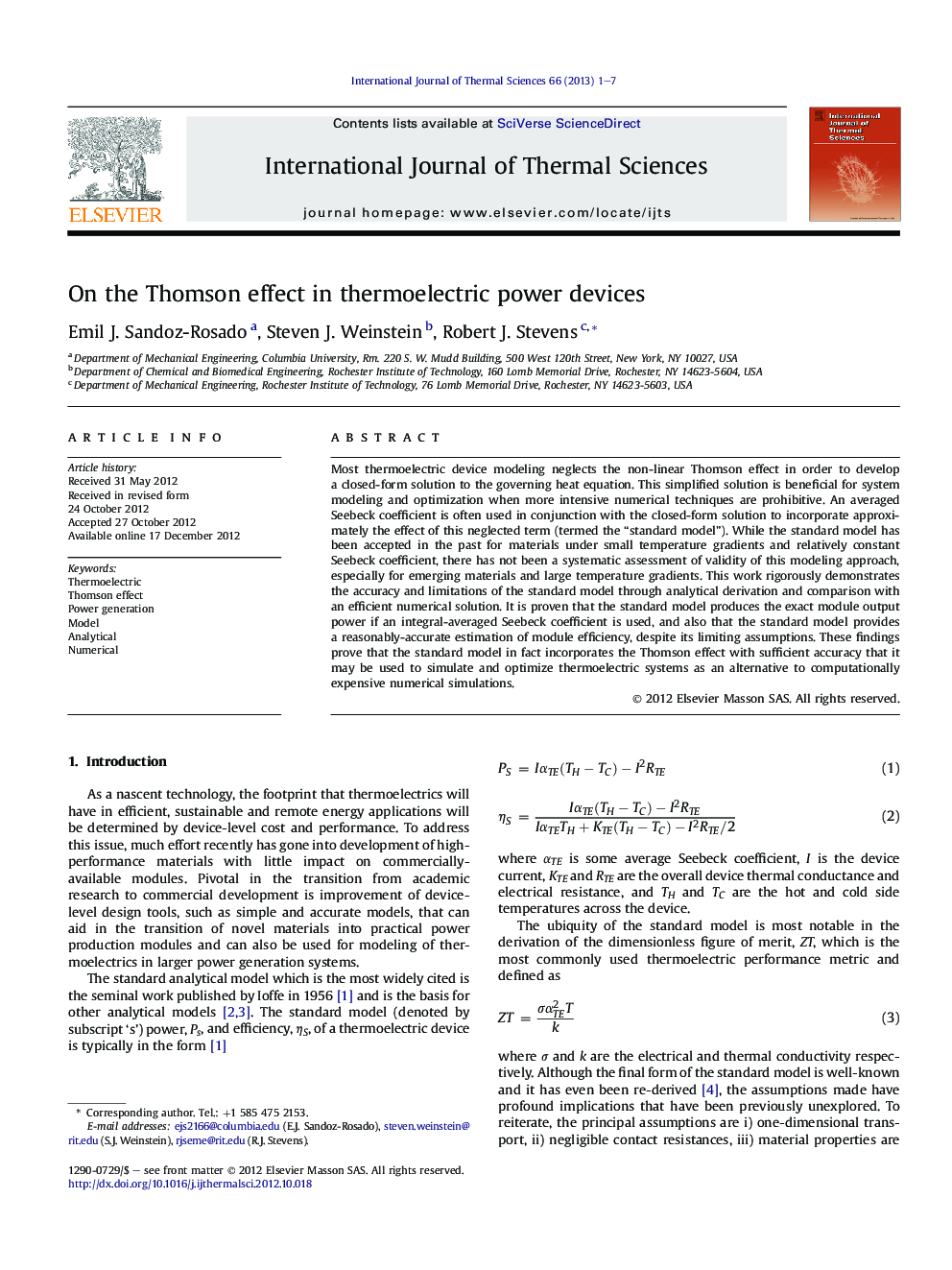| Article ID | Journal | Published Year | Pages | File Type |
|---|---|---|---|---|
| 668594 | International Journal of Thermal Sciences | 2013 | 7 Pages |
Most thermoelectric device modeling neglects the non-linear Thomson effect in order to develop a closed-form solution to the governing heat equation. This simplified solution is beneficial for system modeling and optimization when more intensive numerical techniques are prohibitive. An averaged Seebeck coefficient is often used in conjunction with the closed-form solution to incorporate approximately the effect of this neglected term (termed the “standard model”). While the standard model has been accepted in the past for materials under small temperature gradients and relatively constant Seebeck coefficient, there has not been a systematic assessment of validity of this modeling approach, especially for emerging materials and large temperature gradients. This work rigorously demonstrates the accuracy and limitations of the standard model through analytical derivation and comparison with an efficient numerical solution. It is proven that the standard model produces the exact module output power if an integral-averaged Seebeck coefficient is used, and also that the standard model provides a reasonably-accurate estimation of module efficiency, despite its limiting assumptions. These findings prove that the standard model in fact incorporates the Thomson effect with sufficient accuracy that it may be used to simulate and optimize thermoelectric systems as an alternative to computationally expensive numerical simulations.
► Standard integral-averaged Seebeck model is suitable for engineering simulation and optimization. ► Using an integral-averaged Seebeck coefficient accounts for Thomson effect for power calculations. ► Standard model is compared to an exact numerical model for range of Seebeck profiles with good agreement. ► Shooting method is an efficient means of modeling thermoelectrics devices.
